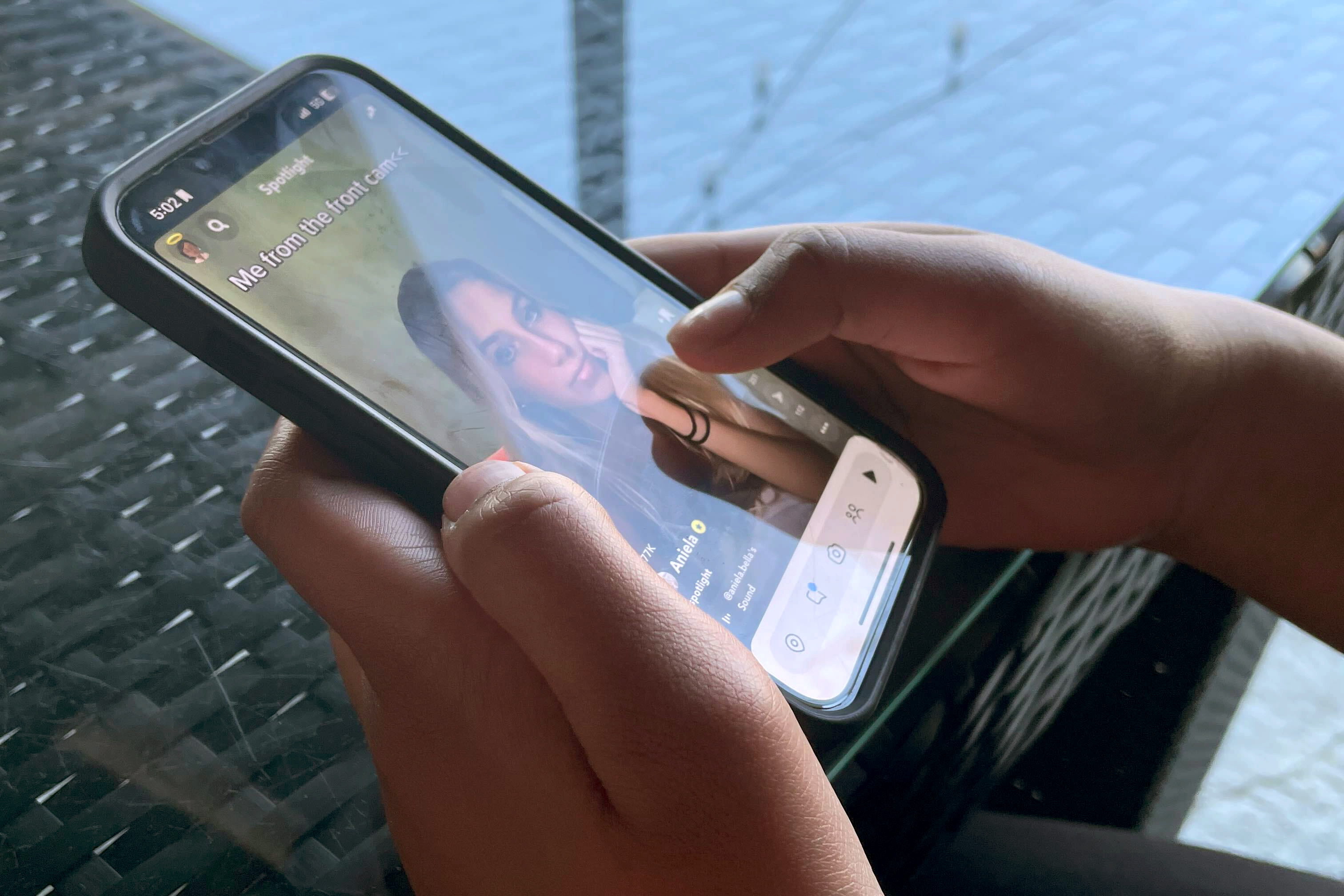Child Influencers in Illinois Can Now Sue for Earnings
Child Influencers in Illinois Can Now Sue for Earnings TIME


Illinois Becomes First State to Compensate Child Social Media Influencers
CHICAGO — Illinois is the first state in the U.S. to ensure child social media influencers are compensated for their work, according to Sen. David Koehler, of Peoria, who sponsored a bill that was signed into law and will go into effect on July 1, 2024.
Background
“The rise of social media has given children new opportunities to earn a profit,” Koehler said in an emailed press release after the bill was signed Friday afternoon. “Many parents have taken this opportunity to pocket the money, while making their children continue to work in these digital environments.”
Sustainable Development Goals
The idea for the law, which covers children under the age of 16 featured in monetized online platforms, including video blogs (also known as vlogs), was brought to Koehler by a 15-year-old in his district, the Democratic senator said.
Impact on Children
Besides coordinated dances and funny toddler comments, family vlogs nowadays may share intimate details of their children’s lives — grades, potty training, illnesses, misbehaviors, first periods — for countless strangers to view. Brand deals featuring the internet’s darlings can reap tens of thousands of dollars per video, but so far there are minimal regulations for the “sharenthood” industry, which experts say can cause serious harm to children.
“Videos with kids do really well,” said Bobbi Althoff, a TikToker with more than 5 million followers who used to feature her young daughter in paid advertising, but has since decided not to for privacy reasons.
Expanding Legislation
Many states already require parents to set aside earnings for child entertainers who perform in more traditional settings such as movies and television, but Illinois’ law will be the first to specifically target social media starlets, according to Landon Jacquinot, who is tracking child labor legislation for the National Conference of State Legislatures.
“We could see other states looking into doing something similar, especially in states that have a high volume of family vloggers and social media influencers,” such as California and New York, Jacquinot said. “It’s kind of a new world.”
Details of the Law
The Illinois law will entitle child influencers to a percentage of earnings based on how often they appear on video blogs or online content that generates at least 10 cents per view. To qualify, the content must be created in Illinois, and kids would have to be featured in at least 30% of the content in a 30-day period.
Video bloggers — or vloggers — would be responsible for maintaining records of kids’ appearances and must set aside gross earnings for the child in a trust account for when they turn 18; otherwise, the child can sue.
Support for the Law
Children “deserve to be shielded from parents who would attempt to take advantage of their child’s talents and use them for their own financial gain,” said Alex Gough, a spokesperson for Illinois Gov. J.B. Pritzker, after the governor signed the legislation.
Teen Advocate’s Role
Shreya Nallamothu, the teen who brought her concerns to Koehler and set the legislation in motion, first zeroed in on the issue while scrolling through social media during quarantine three years ago.
“I realized that there’s a lot of exploitation that can happen within the world of ‘kidfluencing,’” said Nallamothu, now 16. “And I realized that there was absolutely zero legislation in place to protect them.”
She clarified that the law is not meant for parents who share photos of their kids on social media for family and friends, or even those who post a viral video. “This is for families who make their income off of child vlogging and family vlogging,” she said.
Legislative Landscape
Lawmakers in Illinois, where Democrats hold a supermajority, passed the bill in May with bipartisan support. Other Democratic-led states have made efforts to regulate the child influencer industry with less success. A 2018 California child labor bill included a social media provision that was removed by the time it was passed. Washington state’s 2023 bill — spearheaded by Chris McCarty, another teen and the founder of Quit Clicking Kids, an advocacy organization focused on protecting minors being monetized online — stalled out in committee.
“I sincerely hope that this momentum continues in other states and eventually nationwide,” McCarty said Friday about the Illinois law.
Contrasting Approaches
But several Republican-led states this year have instead loosened child labor laws to help alleviate workforce shortages. An Iowa law signed at the end of May allows teenagers to work more jobs and for longer hours, and Arkansas in March eliminated permits that required employers to verify a child’s age and a parent’s consent.
- How to Help
SDGs, Targets, and Indicators Analysis
1. Which SDGs are addressed or connected to the issues highlighted in the article?
- SDG 1: No Poverty – The article discusses child social media influencers being compensated for their work, which relates to addressing poverty.
- SDG 4: Quality Education – The article mentions the sharing of intimate details of children’s lives in family vlogs, which can have an impact on their education and well-being.
- SDG 8: Decent Work and Economic Growth – The article focuses on regulating the child influencer industry and ensuring fair compensation for child influencers, which relates to decent work and economic growth.
- SDG 10: Reduced Inequalities – The article highlights the need to protect child influencers from exploitation and ensure their fair treatment, addressing inequalities in the industry.
- SDG 16: Peace, Justice, and Strong Institutions – The article discusses the need for legislation to protect child influencers and prevent exploitation, contributing to the goal of establishing strong institutions.
2. What specific targets under those SDGs can be identified based on the article’s content?
- Target 1.2: By 2030, reduce at least by half the proportion of men, women, and children of all ages living in poverty in all its dimensions according to national definitions – Addressing poverty by ensuring fair compensation for child influencers.
- Target 4.2: By 2030, ensure that all girls and boys have access to quality early childhood development, care, and pre-primary education so that they are ready for primary education – Protecting children’s well-being and education by regulating the sharing of intimate details in family vlogs.
- Target 8.7: Take immediate and effective measures to eradicate forced labor, end modern slavery and human trafficking, and secure the prohibition and elimination of the worst forms of child labor, including recruitment and use of child soldiers, and by 2025 end child labor in all its forms – Regulating the child influencer industry to prevent exploitation and protect child influencers from harmful work conditions.
- Target 10.2: By 2030, empower and promote the social, economic, and political inclusion of all, irrespective of age, sex, disability, race, ethnicity, origin, religion, or economic or other status – Ensuring fair treatment and protection for child influencers to reduce inequalities in the industry.
- Target 16.6: Develop effective, accountable, and transparent institutions at all levels – Establishing legislation to protect child influencers and prevent exploitation contributes to the development of effective and accountable institutions.
3. Are there any indicators mentioned or implied in the article that can be used to measure progress towards the identified targets?
- Indicator for Target 1.2: Proportion of child influencers receiving fair compensation for their work.
- Indicator for Target 4.2: Number of regulations implemented to protect children’s privacy and well-being in family vlogs.
- Indicator for Target 8.7: Number of child influencers protected from exploitative work conditions through legislation.
- Indicator for Target 10.2: Percentage of child influencers who report fair treatment and protection from exploitation in the industry.
- Indicator for Target 16.6: Existence of legislation and enforcement mechanisms to protect child influencers from exploitation.
4. Table: SDGs, Targets, and Indicators
SDGs Targets Indicators SDG 1: No Poverty Target 1.2: By 2030, reduce at least by half the proportion of men, women, and children of all ages living in poverty in all its dimensions according to national definitions Proportion of child influencers receiving fair compensation for their work SDG 4: Quality Education Target 4.2: By 2030, ensure that all girls and boys have access to quality early childhood development, care, and pre-primary education so that they are ready for primary education Number of regulations implemented to protect children’s privacy and well-being in family vlogs SDG 8: Decent Work and Economic Growth Target 8.7: Take immediate and effective measures to eradicate forced labor, end modern slavery and human trafficking, and secure the prohibition and elimination of the worst forms of child labor, including recruitment and use of child soldiers, and by 2025 end child labor in all its forms Number of child influencers protected from exploitative work conditions through legislation SDG 10: Reduced Inequalities Target 10.2: By 2030, empower and promote the social, economic, and political inclusion of all, irrespective of age, sex, disability, race, ethnicity, origin, religion, or economic or other status Percentage of child influencers who report fair treatment and protection from exploitation in the industry SDG 16: Peace, Justice, and Strong Institutions Target 16.6: Develop effective, accountable, and transparent institutions at all levels Existence of legislation and enforcement mechanisms to protect child influencers from exploitation Behold! This splendid article springs forth from the wellspring of knowledge, shaped by a wondrous proprietary AI technology that delved into a vast ocean of data, illuminating the path towards the Sustainable Development Goals. Remember that all rights are reserved by SDG Investors LLC, empowering us to champion progress together.
Source: time.com

Join us, as fellow seekers of change, on a transformative journey at https://sdgtalks.ai/welcome, where you can become a member and actively contribute to shaping a brighter future.







